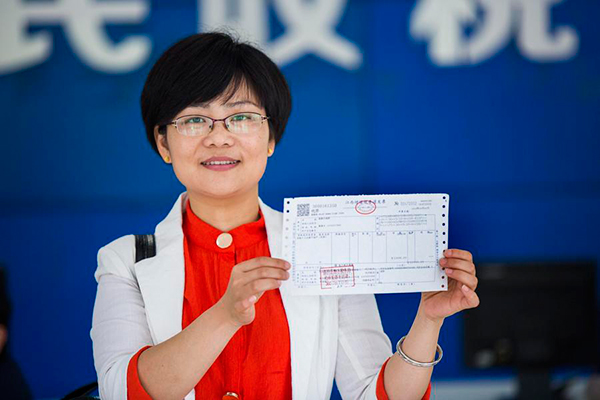
China received international recognition for its reform of replacing the business tax with value-added tax, which has been fully implemented since last May.
The reform replaced the business tax with a unified value-added tax across the nation.
International groups, including the Organization for Economic Cooperation and Development (OECD), Bloomberg News, and PricewaterhouseCoopers (PwC), spoke highly of the efficiency of China’s finance and taxation departments in relieving tax burdens in the business sector, promoting structural supply-side reform and boosting innovation and entrepreneurship.
As a milestone of China’s economic reform, the tax reform puts China in a leading position in the world regarding value-added tax system.
High efficiency of finance and taxation departments
When Premier Li Keqiang announced on March 5, 2016, that the reform of replacing the business tax with value-added tax would be rolled out to cover all sectors on May 1, some were skeptical about the feasibility of the timetable.
Against expectations, China’s Ministry of Finance and State Administration of Taxation made the impossible possible as they tackled technological and institutional difficulties and worked out the plan in less than eight weeks.
The coordination between local and central tax departments during the reform also amazed some Western experts, according to Rick Krever, a professor from Monash University in Australia.
Considering the huge number of taxpayers in China, the successful implementation of the tax reform shows the nation’s resolution and confidence to modernize its tax system, according to Edward Troup, executive chairman of Britain’s HM Revenue and Customs.
Milestone in economic reform
An OECD expert on taxation policies said that replacing the business tax with value-added tax in China is a significant reform that can serve as a model for other countries.
He made the conclusion after field research at tax departments in Beijing and Jiangsu province.
The reform of replacing the business tax with value-added tax is not only helpful to promote economic growth in the short term, but also will contribute to balanced economic development and economic structural optimization, according to a report by Bloomberg.
The reform has removed tax barriers between manufacturing industry and service industry, creating a more fair and effective taxation environment and expanding trade among different sectors, according to Hu Genrong, a partner at PwC.
Successful model for taxation reform
Before the nationwide implementation of the tax reform, pilot programs were carried out in many regions and sectors.
The reform is one of the largest tax reduction initiatives around the world in recent years. The new tax system is highly advanced and shows a good example to the world, according to Hu.
With its strong and open economy, China is implementing the right value-added tax system. China has quickly transformed its value-added tax system and avoided mistakes made by other countries, showing a successful example for international tax reform, according to a value-added tax expert from the European Union.
